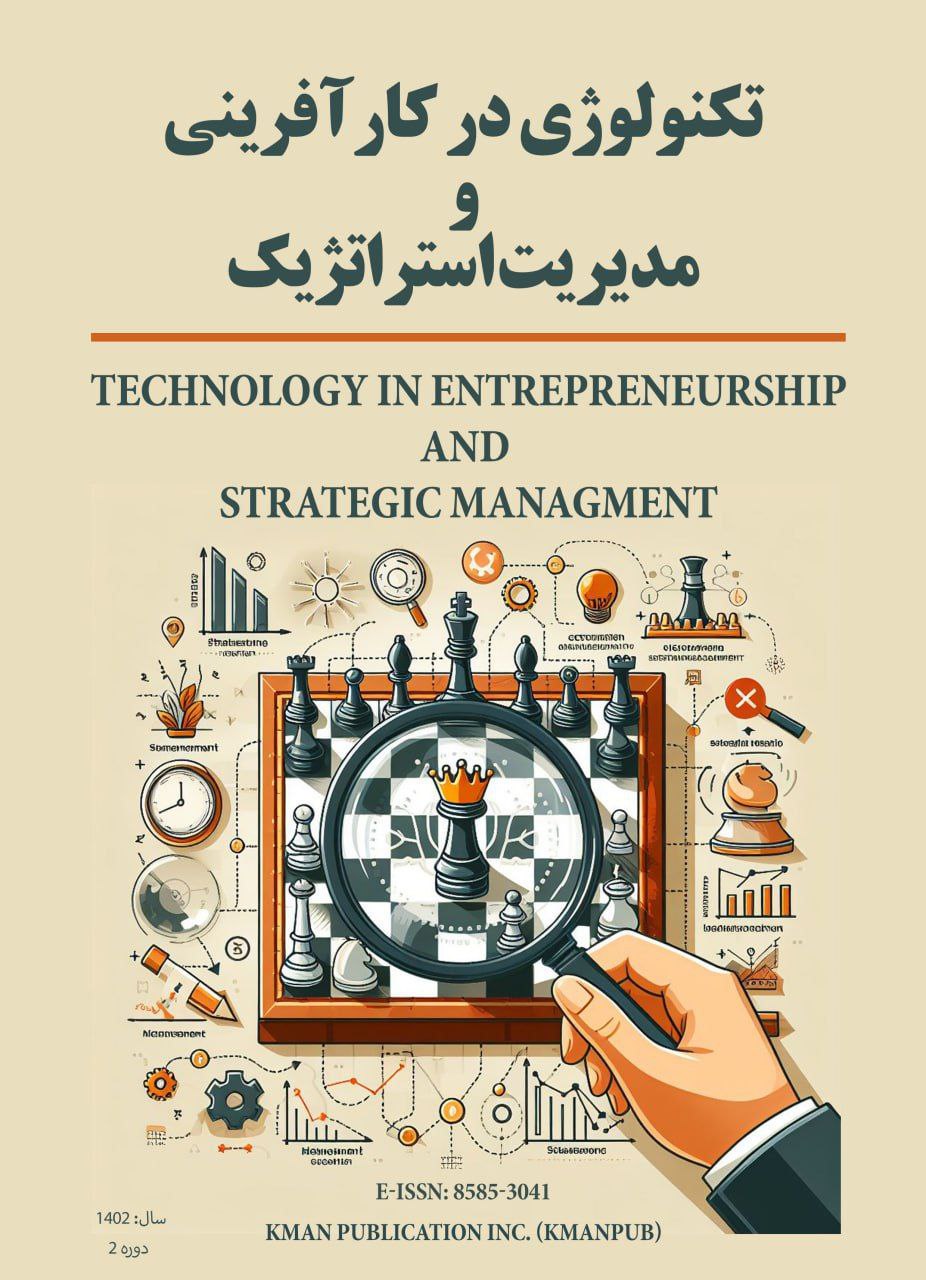Developing a Social Media Marketing Model for Purchasing Medical Equipment During the COVID-19 Pandemic to Enhance Public Health
Keywords:
Social Media Marketing, Medical Equipment, COVID-19, HealthAbstract
The outbreak of COVID-19 has had a devastating impact on global health systems, with a ripple effect on all aspects of human life. Therefore, the aim of this study was to develop a social media marketing model for purchasing medical equipment during the COVID-19 pandemic to enhance public health. The research method was mixed. The qualitative population included all academic experts and marketing specialists, with a sample size of 25 participants, determined through semi-structured Delphi interviews until theoretical saturation was achieved. The quantitative population included all customers and sellers of medical equipment stores in the country, with a sample size of 384 participants selected randomly according to the Krejcie and Morgan sampling table. The questionnaire comprised 136 items using a 5-point Likert scale. Exploratory Factor Analysis (EFA) and Confirmatory Factor Analysis (CFA) were used for data analysis. The results indicated that the categories were identified in the form of 36 categories, 136 conceptual codes, and 256 items (indicators). These were embedded within the six components of the paradigm model as causal conditions (8 categories), the main phenomenon (3 categories), strategies (5 categories), contextual conditions (8 categories), intervening conditions (8 categories), and outcomes (4 categories). The overall model fit of the research was 0.773, and the model structure had a good fit with the data. In general, it can be stated that focusing on the development of social media marketing in viral crisis conditions can provide a foundational basis for marketing development in such crisis conditions.
Downloads
References
Appel, G., Grewal, L., Hadi, R., & Stephen, A. T. (2020). The future of social media in marketing. Journal of the Academy of
Marketing Science, 48(1), 79-95. https://doi.org/10.1007/s11747-019-00695-1
Apuke, O. D., & Omar, B. (2021). Fake news and COVID-19: modelling the predictors of fake news sharing among social
media users. Telematics and Informatics, 56, 101475. https://doi.org/10.1016/j.tele.2020.101475
Chatterjee, S., & Kumar Kar, A. (2020). Why do small and medium enterprises use social media marketing and what is the
impact: Empirical insights from India. International Journal of Information Management, 53, 102103.
https://doi.org/10.1016/j.ijinfomgt.2020.102103
Chuang, S.-H. (2020). Co-creating social media agility to build strong customer-firm relationships. Industrial Marketing
Management, 84, 202-211. https://doi.org/10.1016/j.indmarman.2019.06.012
Deb, P., Furceri, D., Ostry, J. D., & Tawk, N. (2020). The economic effects of COVID-19 containment measures.
https://papers.ssrn.com/sol3/papers.cfm?abstract_id=3661431
Ebrahim, R. S. (2020). The Role of Trust in Understanding the Impact of Social Media Marketing on Brand Equity and Brand
Loyalty. Journal of Relationship Marketing, 19(4), 287-308. https://doi.org/10.1080/15332667.2019.1705742
Gupta, A., Tyagi, M., & Sharma, D. (2013). Use of Social Media Marketing in Healthcare. Journal of Health Management,
(2), 293-302. https://doi.org/10.1177/0972063413489058
Habes, M., Alghizzawi, M., Ali, S., SalihAlnaser, A., & Salloum, S. A. (2020). The Relation among Marketing ads, via Digital
Media and mitigate (COVID-19) pandemic in Jordan. International Journal of Advanced Science and Technology, 29(7),
_19_pandemic_in_Jordan/links/5f043d07a6fdcc4ca452f706/The-Relation-among-Marketing-ads-via-Digital-Media-andmitigate-COVID-19-pandemic-in-Jordan.pdf
Naeem, M. (2021). Do social media platforms develop consumer panic buying during the fear of Covid-19 pandemic. Journal
of Retailing and Consumer Services, 58, 102226. https://doi.org/10.1016/j.jretconser.2020.102226
Nicola, M., Alsafi, Z., Sohrabi, C., Kerwan, A., Al-Jabir, A., Iosifidis, C., Agha, M., & Agha, R. (2020). The socio-economic
implications of the coronavirus pandemic (COVID-19): A review. International Journal of Surgery, 78, 185-193.
https://doi.org/10.1016/j.ijsu.2020.04.018
Oliveira, M., Barbosa, R., & Sousa, A. (2020). The Use of Influencers in Social Media Marketing. In Á. Rocha, J. L. Reis, M.
K. Peter, & Z. Bogdanović, Marketing and Smart Technologies Singapore.
Patma, T. S., Wardana, L. W., Wibowo, A., & Narmaditya, B. S. (2020). The shifting of business activities during the COVID19 pandemic: Does social media marketing matter? The Journal of Asian Finance, Economics and Business, 7(12), 283-
https://doi.org/10.13106/jafeb.2020.vol7.no12.283
Paurova, V., Krizanova, A., & Nadanyiova, M. (2020). Social Media Marketing As Tool of Business Success. Economic and
Social Development: Book of Proceedings, 492-498. https://www.researchgate.net/profile/VenelinTerziev/publication/340225475_Social_effectiveness_as_meter_in_the_development_of_social_economy/links/5e7dbba
a6fdcc139c08fb74/Social-effectiveness-as-meter-in-the-development-of-social-economy.pdf#page=501
Pizzuti, A. G., Patel, K. H., McCreary, E. K., Heil, E., Bland, C. M., Chinaeke, E., Love, B. L., & Bookstaver, P. B. (2020).
Healthcare practitioners’ views of social media as an educational resource. PLoS One, 15(2), e0228372.
https://doi.org/10.1371/journal.pone.0228372
Sharma, S., Singh, S., Kujur, F., & Das, G. (2021). Social Media Activities and Its Influence on Customer-Brand Relationship:
An Empirical tudy of Apparel Retailers’ Activity in India. Journal of Theoretical and Applied Electronic Commerce
Research, 16(4), 602-617. https://doi.org/10.3390/jtaer16040036
Downloads
Published
Submitted
Revised
Accepted
Issue
Section
License

This work is licensed under a Creative Commons Attribution-NonCommercial 4.0 International License.











